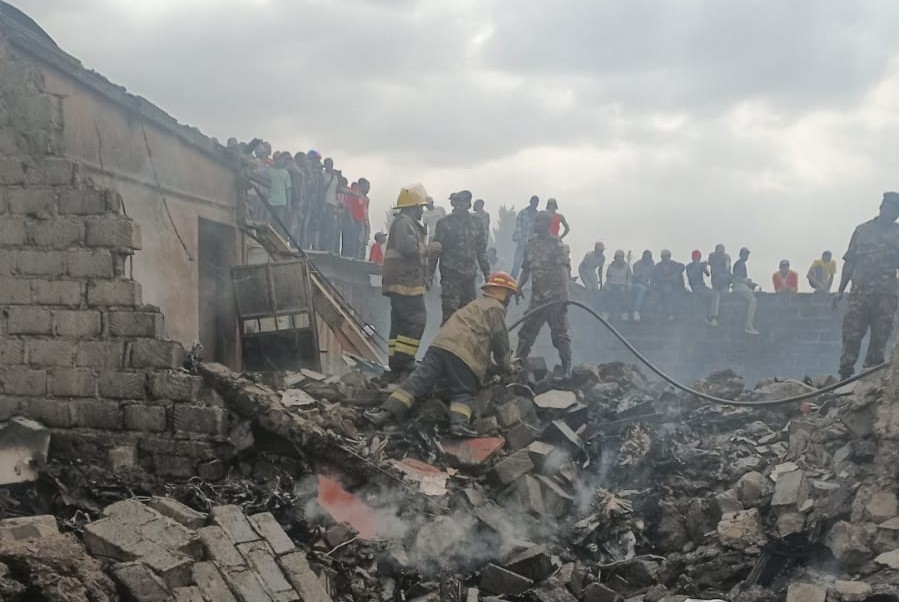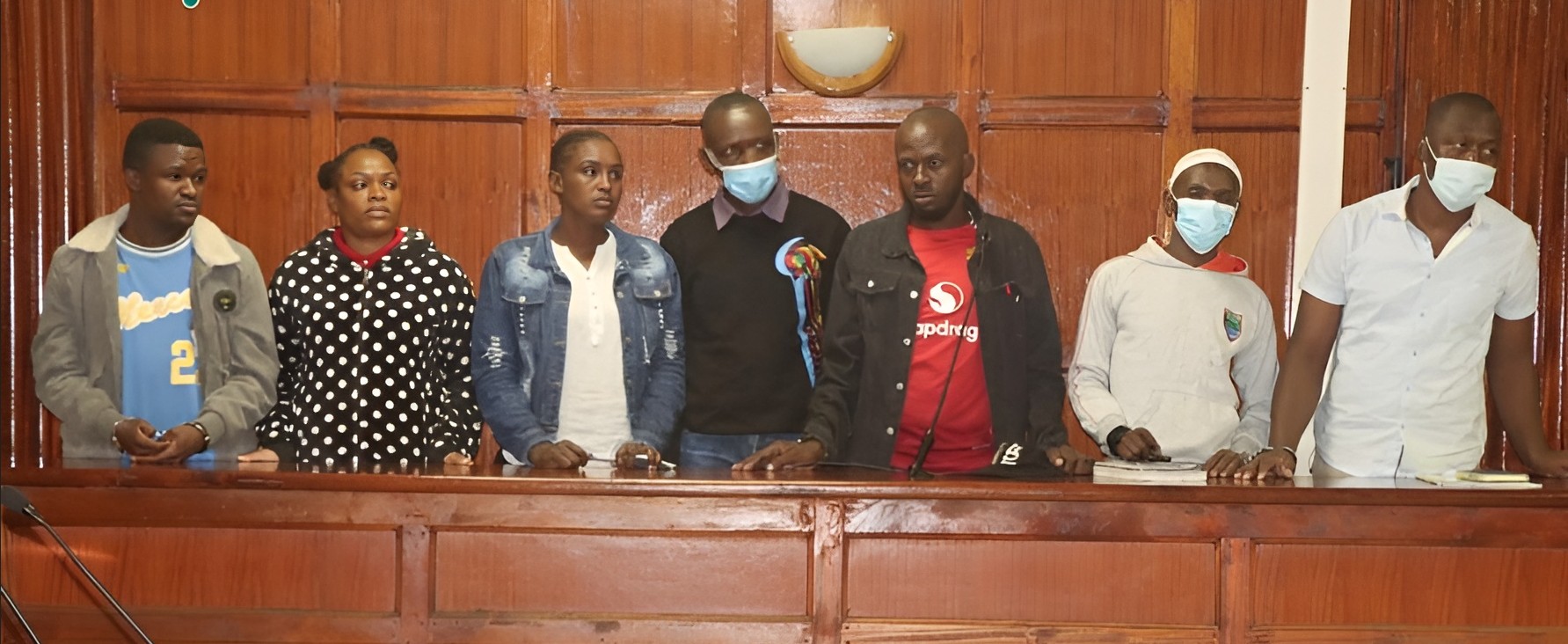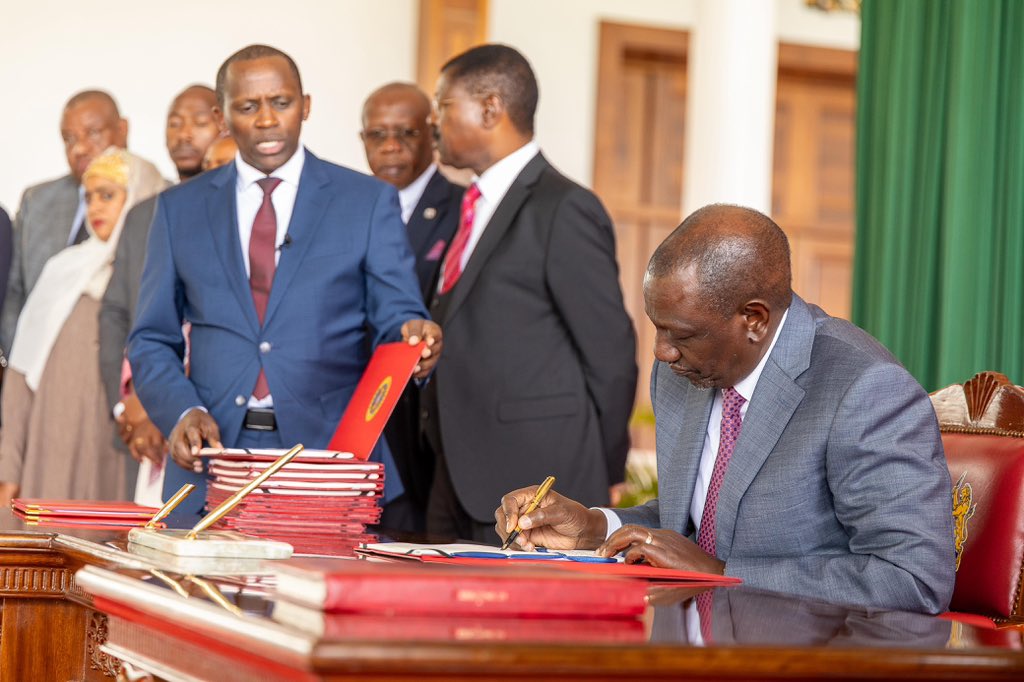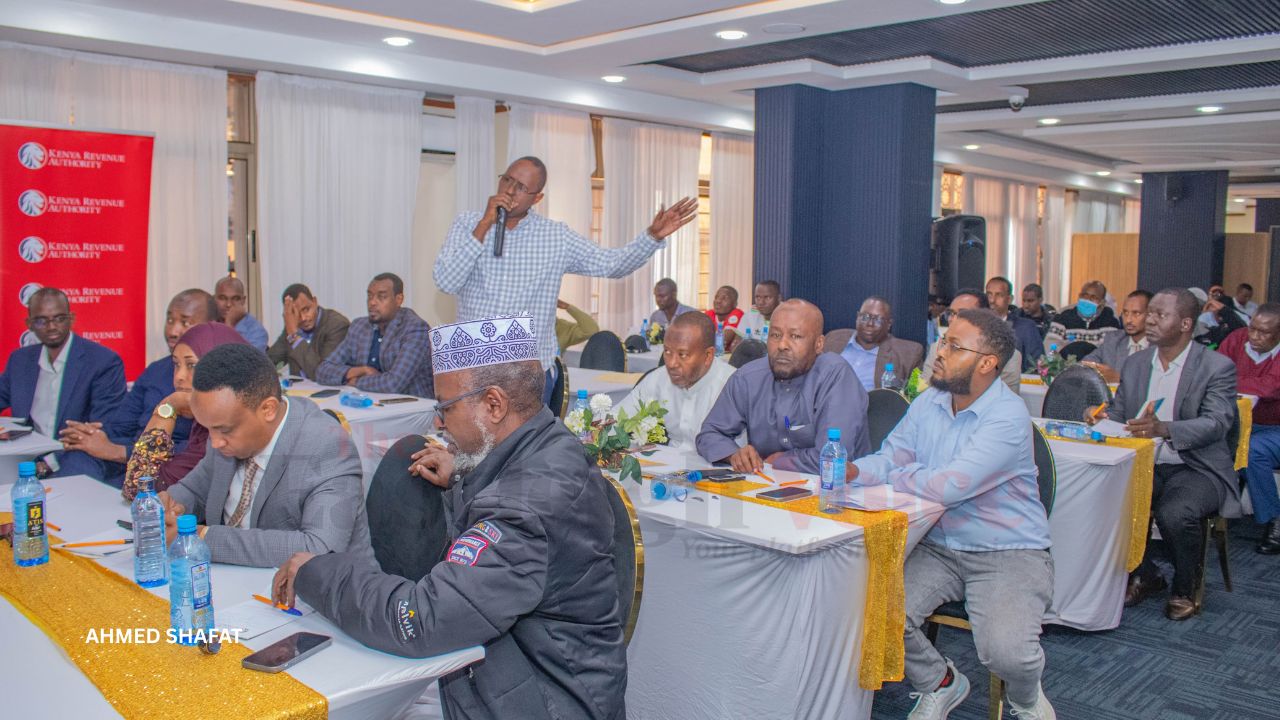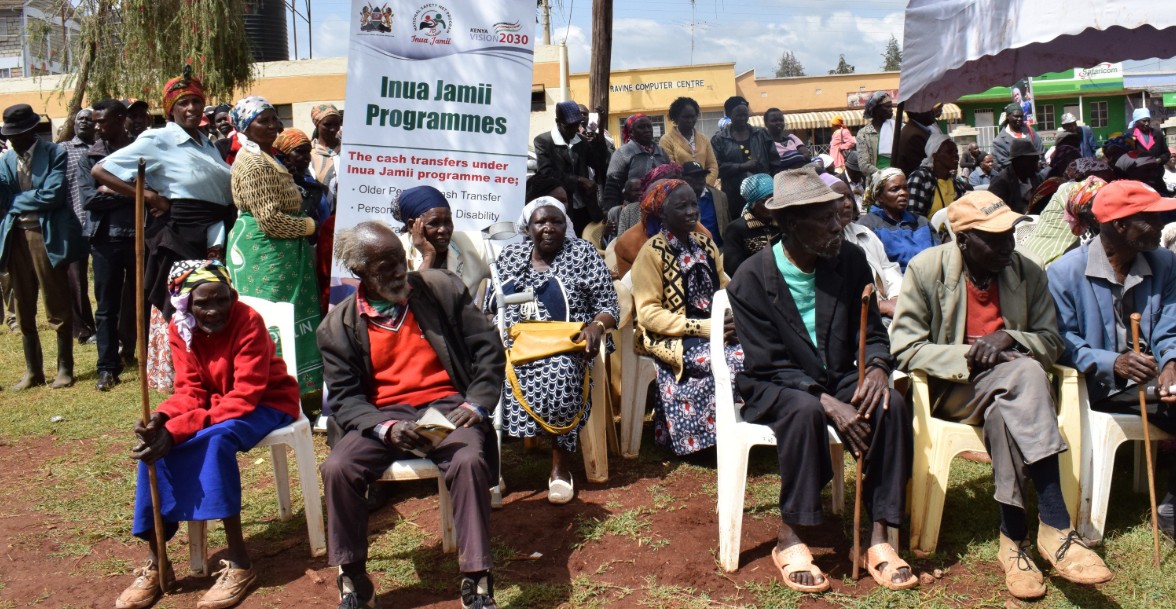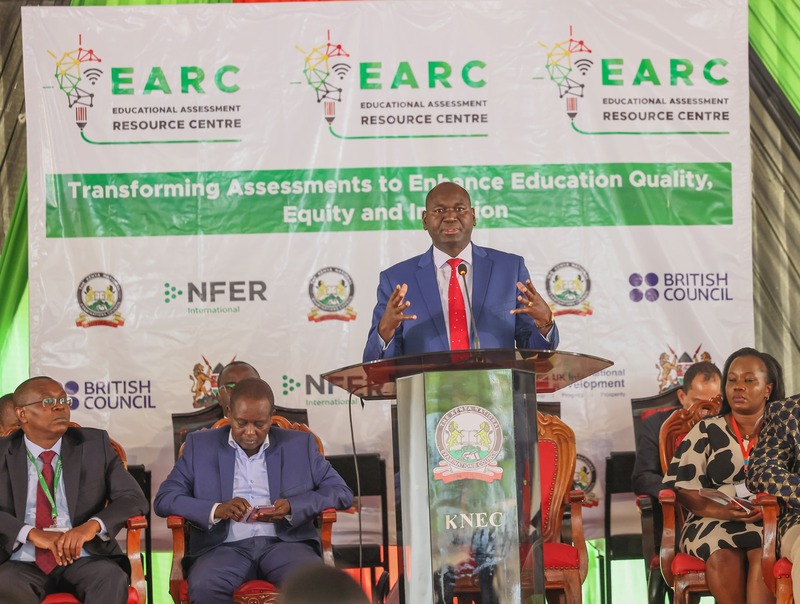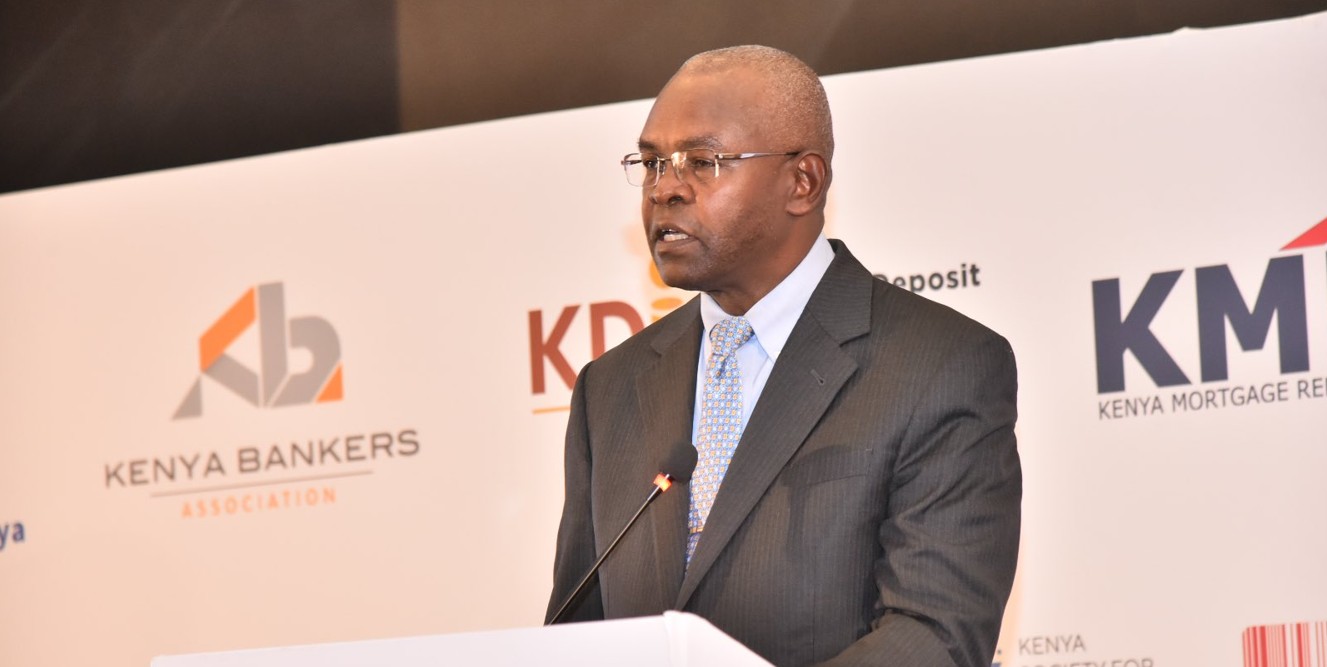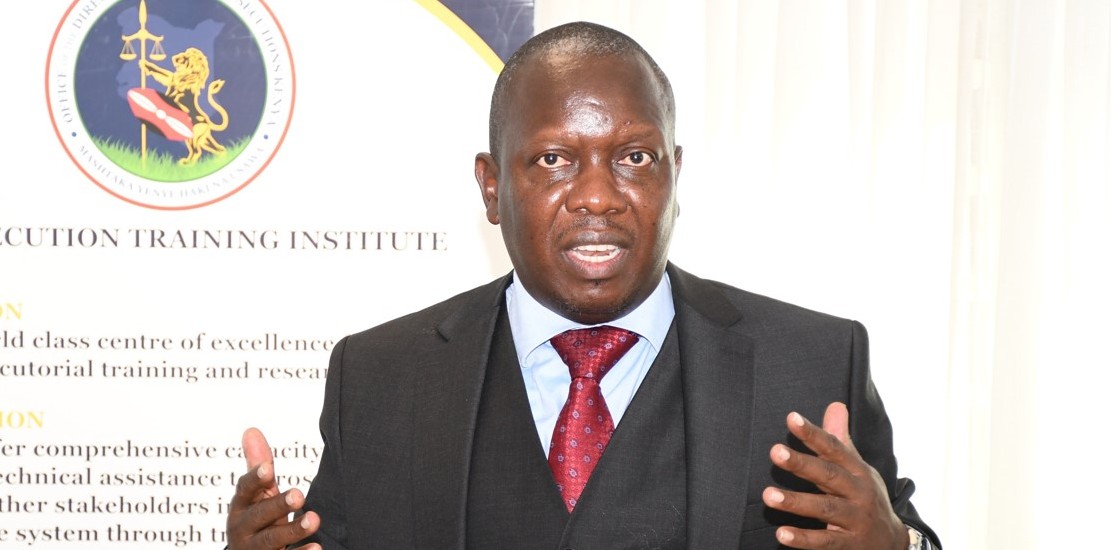Tundu Lissu calls for action amid rising human rights abuses in Tanzania
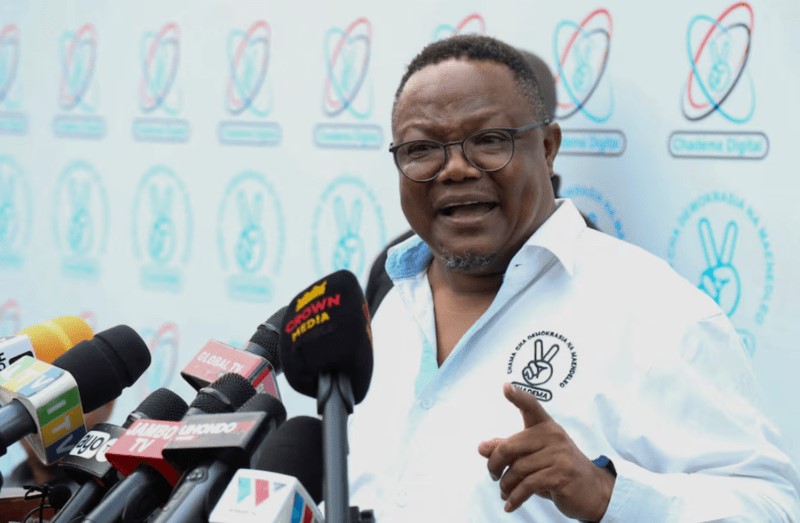
Lissu believes that Tanzanians must reflect on the root causes of police misconduct.
Prominent Tanzanian opposition politician Tundu Lissu has called on citizens to end impunity and police brutality by electing leaders committed to human rights and accountability.
Lissu, the deputy leader of Chadema party, spoke during an interview with Nation Media, where he emphasised that the power to dismantle the cycle of violence lies with the people, especially as Tanzania heads toward its municipal elections in November.
More To Read
- Tanzanian president launches Chinese-built commercial, logistics hub
- EAC warns partner states against unilateral directives undermining Common Market Protocol
- Ex-Tanzanian minister January Makamba barred from defending seat ahead of key primaries
- Tanzania sets October 29 General Election date amid opposition exclusion fears
- Family demands answers after activist Mwabili Mwagodi vanishes in Tanzania
- Terrorism charges spark outcry as State 'clamps down on dissent'
Lissu's statements come amid an escalating series of incidents that have stirred fear and concern among opposition leaders and civil society groups. As the election season unfolds, reports of abductions, torture, and arbitrary arrests have become increasingly common, with victims pointing to law enforcers as the main culprits — a claim police officials deny.
“If the government is not taking action, we, the people, must,” Lissu asserted in Nairobi on Tuesday.
“Electing leaders who will genuinely safeguard our rights is the first step in addressing these abuses.”
Legal battles and procedural disputes have marred the upcoming municipal elections. On Tuesday, three petitioners lost a case at Tanzania’s High Court, which ruled that local administrators, rather than the newly formed electoral commission, would conduct the elections.
A judge ruled that a specific law is required to officially transfer the responsibility of overseeing municipal elections to the electoral commission, which currently handles only presidential and parliamentary elections.
This decision has heightened tension, with municipal elections widely viewed as a precursor to the 2025 presidential and parliamentary elections.
Grassroots leaders
“The officials elected at the grassroots level will play a crucial role in national campaigns next year,” Lissu explained, underscoring the high stakes and long-term impact of these local elections.
But for Lissu, the challenge extends beyond electing new leadership. He believes that Tanzanians must reflect on the root causes of police misconduct, which has intensified under recent administrations.
“We need to examine the reasons behind these heinous actions by the government. Ask ourselves, what environment has enabled police kidnappings and brutality to thrive? If we don’t address these conditions, we risk electing new leaders only to find they are worse than those before (them),” Lissu stated.
Lissu, a long-time critic of government repression, has personal experience of violent persecution.
In 2017, he survived a brutal assassination attempt that left him with multiple gunshot wounds.
Despite intensive investigations, the assailants remain unidentified and unpunished — a fact that underscores the risks faced by outspoken opposition leaders in Tanzania.
Recalling the attack, Lissu said, “People have been disappearing or facing brutal violence since 2015, with no justice served. This history of impunity emboldens perpetrators and leaves citizens vulnerable.”
Recent cases of abductions have intensified criticism of President Samia Suluhu Hassan, who had initially garnered praise for easing the authoritarian policies associated with her predecessor, John Magufuli.
Just last week, Chadema’s women’s wing publicity secretary, Aisha Machano, was abducted in Kibiti while on official duty. She was found injured in a forest, a month after another opposition member was killed following a similar ordeal.
"The government should ensure its security apparatus is not weaponised against its own citizens. “Our laws explicitly prohibit kidnappings and violence, whether they occur in Tanzania, Kenya, the United States, or Russia,” said Lissu.
The worrying trend of abductions and assaults on opposition members has sparked protests.
In September, the Chadema party organised demonstrations in Dar es Salaam to demand accountability for the abduction and the death of Ali Kibao, another prominent Chadema member.
Kibao was abducted while he was travelling by bus from Dar es Salaam to Tanga and was later found dead.
The police blocked the protests, which fuelled public anger and frustration over the lack of justice for Kibao and others.
President Samia has publicly condemned the abductions and announced an investigation into Kibao’s death.
However, the lack of released findings has cast doubt on the government's commitment to genuine reform. Lissu responded to this by saying, "Our constitutional framework requires a full investigation of these killings and disappearances if citizens have a right to life. Citizens deserve to know that their lives and rights are protected.”
As Tanzania prepares for the municipal elections, Lissu’s message resonates with a growing segment of the population demanding a shift in governance.
“Tanzania's future hinges on the choices we make now. Elect leaders who will stand by the people, uphold justice, and end the reign of fear,” Lissu said.
Top Stories Today
